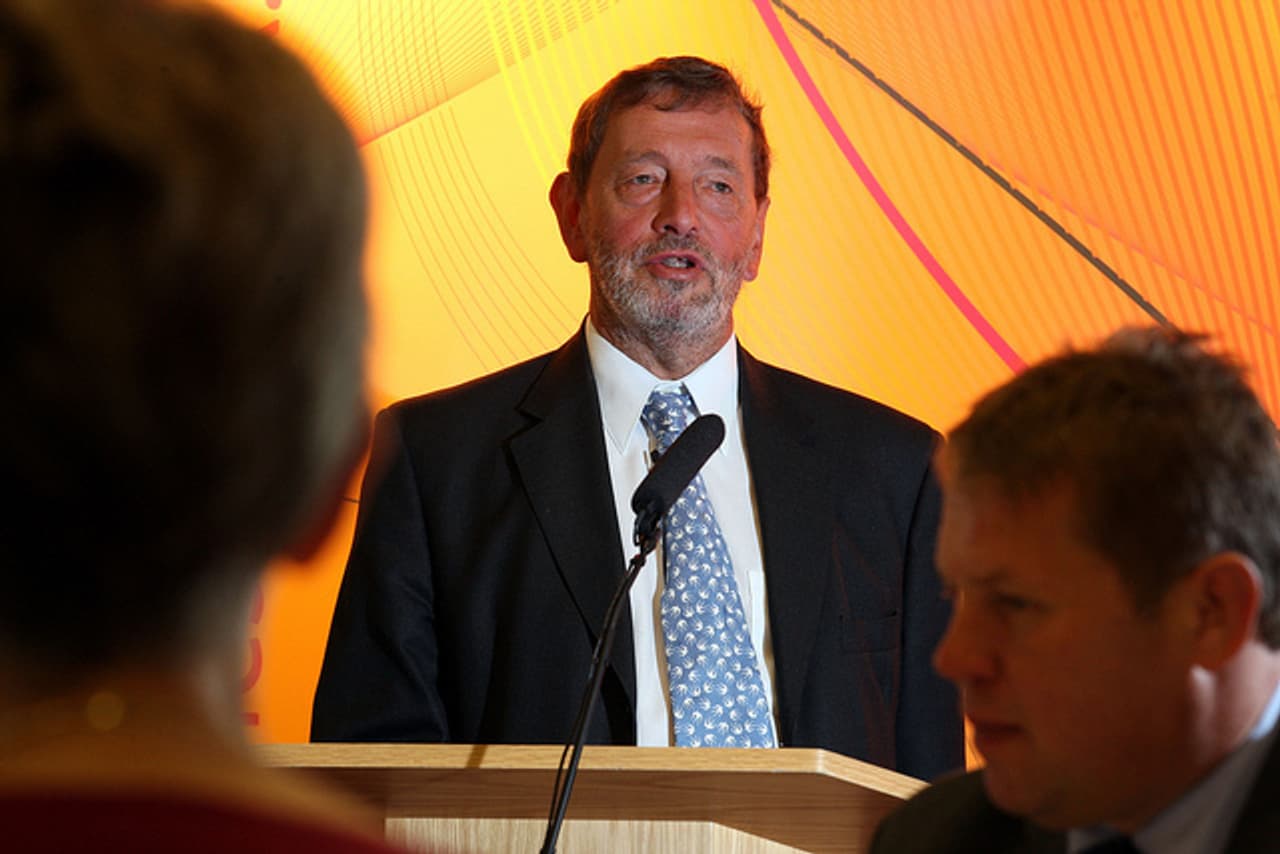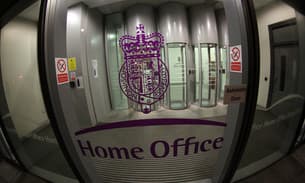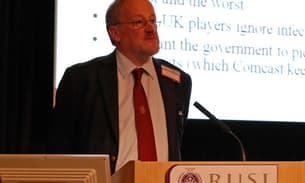
David Blunkett tells Twitter, WhatsApp and Facebook: You must alert police when you notice ‘suspicious’ patterns of communication
David Blunkett by Working Word PR/Flickr
Former Home Secretary David Blunkett today called on social media firms such as Twitter, WhatsApp and Facebook to alert authorities when suspicious words are repeatedly used by customers on their communication platforms.
In an interview with the Bureau, Blunkett, who was Home Secretary under Tony Blair, said companies “need to take some responsibility internally for watching what’s going on”.
He said companies should follow protocols to indicate when they should raise the alarm, but stressed he “wouldn’t expect them to hand over information on a nod, that would be completely improper”.
Instead, he suggested another way in which an alert system might kick in once a suspicious pattern of communication had been identified. He said: “Where we [the company] identify a prima facie worry that someone is using terminology or indicating a particular pattern, we will let you know that this communication is taking place. It is now up to you to get a warrant if you want to access content.
“This would not happen where somebody mentions a word once.”
The US firms maintain that they do co-operate with overseas law enforcement in emergency situations but in other cases they expect requests to follow legal procedures and they reject them if they are too vague.
They publish “transparency reports” indicating the number or requests for account information they have received from governments and the percentage complied with.
Intelligence and Security Committee
Parliament’s Intelligence and Security Committee, which oversees the intelligence agencies, noted in its November 2013 report into the murder of drummer Lee Rigby that his killers’ social media account had been disabled as a result of an automated process that detected terrorism-related activity. However, the company, later named as Facebook, did not then manually review the content of the account, nor pass any information to the authorities.
The committee noted that the some of the companies it interviewed, including Twitter and Microsoft, were reluctant to monitor their users’ communications due to privacy concerns.
Senior members of the intelligence community have also criticised US social media firms for providing encrypted communication services and for failing to share their users’ data with them.
GCHQ chief Robert Hanningan called their services “the command-and-control networks of choice for terrorists and criminals”, while MI5 director general Andrew Parker complained his agency was “losing visibility of what [terrorists] are saying to each other” shortly afterwards.
And former head of M16 John Sawyers ended a speech at King’s College, London last month with a warning that “none of us can afford for terrorists to use Facebook and other social media to plot their next attack, confident that no-one can monitor them”.
Blunkett himself wrote in the Daily Telegraph: “Tech companies who provide encrypted – and therefore secret – communications online are, albeit unwittingly, helping terrorists to co-ordinate genocide and foster fear and instability around the world”.
Meaningless to ban encryption
This week he told the Bureau it was “meaningless” to try to ban encryption.
He said: “Governments want encryption, companies want encryption in relation to espionage, terrorists want encryption, paedophiles want encryption and the services want to break encryption.
“Saying you can’t encrypt is meaningless. It’s an important debate but I can’t see what people think will be the simple logical outcome.”
There was no contradiction between the intelligence agencies’ desire to access communications and government’s desire to protect its own communications via encryption, he added.
“It is perfectly reasonable for security and intelligence services to want to access the ‘dark net’ and to get into the streams of communication of those they suspect of potential terrorism. This does not contradict the obvious desire of governments and business seeking to protect their own communications from endeavouring to stop intrusion.”
Blunkett also discussed the case of Mohammed Emwazi, the London schoolboy who went on to become an Isis executioner.
The Labour MP suggested MI5 was too slow to intervene because Emwazi was considered an intelligence source.
MI5, like the police in drug operations, had to choose between “letting something run in order to get more information at a higher level or taking out someone who might be a threat,” he said.
“But they often err on the side of letting things run on too much.”
Finally, Blunkett said the security services’ policy of “neither confirm nor deny” needed to become more sophisticated.
“If you use neither confirm nor deny as a mantra you make people more suspicious,” he said. “There will be times when confirming or denying either way would create a risk and undermine operations but there needs to be a closer look at situations where that doesn’t really hold.”
Related story: GCHQ may be exploiting Bank of England cyber testing regime, experts warn




